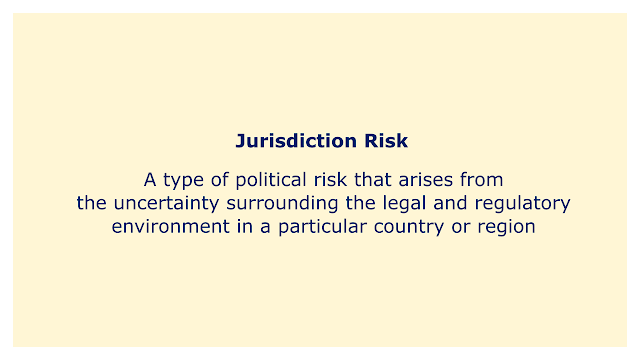 |
| Image: Moneybestpal.com |
Political risk known as jurisdiction risk results from the unpredictability of the legal and regulatory system in a given nation or area. It speaks of the possibility that a foreign investor would lose the capacity to enforce their legal rights, such as those related to property, contracts, and intellectual property, as a result of changes in the political, economic, or legal climate of the host nation.
A variety of circumstances, such as changes in governmental policies, corruption, or a lack of openness in the legal and regulatory system, can lead to the risk of jurisdictional uncertainty. Foreign investors may find it challenging to estimate the risk of investing in a specific nation as well as to create efficient risk management plans to reduce the possible impact of jurisdiction risk due to ambiguity.
A corporation operating in a nation with a track record of nationalizing foreign assets, for instance, may be subject to jurisdictional risk because the government has the right to anytime seize or nationalize the company's assets. The financial performance of the corporation may be impacted by changes in tax laws, regulatory standards, or legal interpretations since they might increase uncertainty and the risk of litigation.
Generally speaking, jurisdiction risk is a complex and diverse issue that necessitates rigorous research and risk management techniques to reduce its potential impact on global trade and investment.
